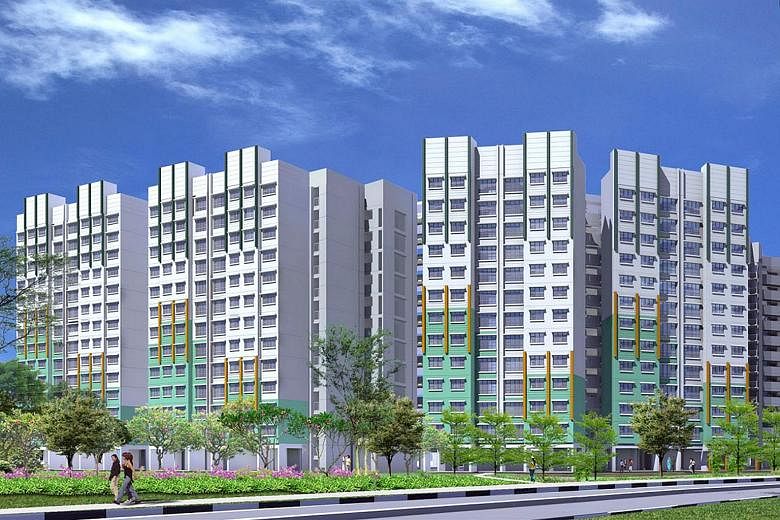SINGAPORE - About 200 defects reported by flat owners in the Woodlands Glen Build-To-Order (BTO) project are being rectified by the building contractor and the Housing Board, said Second Minister for National Development Indranee Rajah.
The defects in the 888-unit project completed in 2017 include cracked toilet seat covers, rusty gates and problems involving weather seals in windows and timber toilet doors.
Responding to Mr Vikram Nair (Sembawang GRC) on Tuesday (Oct 6), Ms Indranee said there are no plans to extend the defects liability period (DLP) for newly completed BTO flats.
Currently, new BTO flats have a one-year liability period, during which building contractors will repair defects reported by flat owners.
HDB also provides all new flat owners with a five-year warranty for external wall seepage or inter-floor seepage, and a 10-year warranty for spalling concrete - the flaking of concrete from the ceiling due to the corrosion of steel reinforcement bars in the floor slab.
Ms Indranee said about 90 per cent of defects are reported within the first year of the block's completion, with the remaining 10 per cent reported in the second to fifth year.
As such, the one year period is "sufficient for the majority of new flat owners, and is in line with the industry practice for private development", she added.
The average number of reported defects for per BTO flat was about 2.6 in the first year, she said, dropping to 0.2 after the first year, to 0.1 after the second year and to 0.05 after the third year.
The vast majority of reported defects involve issues such as scratches or cracks on timber surfaces, walls, tiles and sanitary fittings, added Ms Indranee, who is also Second Finance Minister and Minister in the Prime Minister's Office.
"These are rectified easily by the contractors and do not affect the structural integrity or safety of the building," she said.
HDB will investigate the likely cause of maintenance issues that are reported after the liability period, and advise flat owners on the follow-up action accordingly, she added.
Said Ms Indranee: "If the issue is assessed to be due to an inherent defect or quality issue, HDB will engage the building contractor to rectify it."
Responding to Workers' Party MP Gerald Giam (Aljunied GRC) on co-payment options for residents who encounter defects after the liability period, she said HDB will first investigate the cause and then decide on the best course of action.
"The reason I say this, and I cannot give a definitive answer that automatically everything after the DLP will be attended to by HDB, is because it depends on the nature of the defect. It depends on what exactly is the cause and on the nature of the follow-up action that needs to be taken," she added.
"But the assurance we can give is this: If there's a problem after the DLP, the HDB will look into it and do its best to resolve it with the contractor."
What recourse do residents have in instances where there are recurring problems, asked Ms Carrie Tan (Nee Soon GRC).
Ms Indranee said the same approach will be taken for residents who have had to undergo multiple repair attempts in their flats, such as for water seepage due to shoddy waterproofing works.
She said: "If the seepage arose, let us say, maybe in the sixth year and it was because of the unit above having done certain renovation works and therefore broken the waterproofing, then it really would not be correct to look to HDB for that because the owner above would also have to bear some responsibility.
"Bearing in mind that for flats - both HDB and private developments - it cannot be that a developer remains responsible for the entire lifetime of the building, which is subject to fair wear and tear."
Ms Mariam Jaafar (Sembawang GRC) asked whether expired liability periods for both BTO and Home Improvement Programme projects will be extended, given the halt in works during the circuit breaker period.
Ms Indranee said the Government will look into it.
Correction note: An earlier version of the story stated that the average number of reported defects per BTO flat was about 2.5 in the first year. This is incorrect. It should be 2.6. We are sorry for the error.


